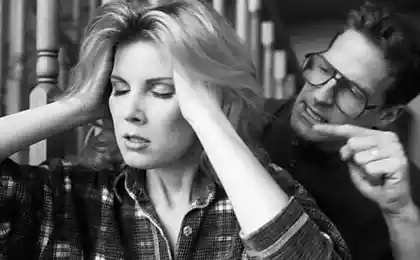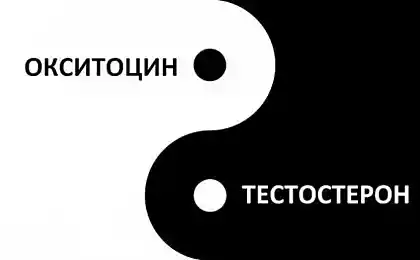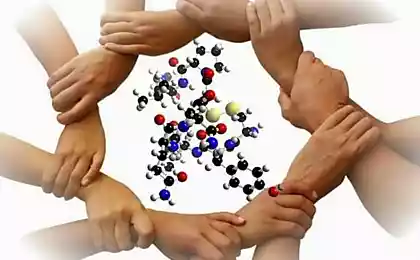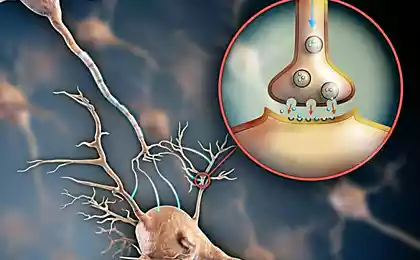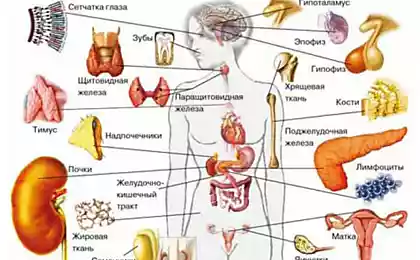707
The level of "hormone of love" in your body is increased when you get home
Do you want male attention? Send a man to ohotuV conference room or on the hunt male competition can cause unexpected surge in testosterone levels. A new study has found a link between testosterone levels and diligence on the part of men, when they come back home "to hunt».
The study found that the higher a man's testosterone level rose during the day, the more oxytocin, "hormone of love", to develop his body upon arrival home. The researchers also found that the increase in the level of oxytocin was greater in men who no longer.
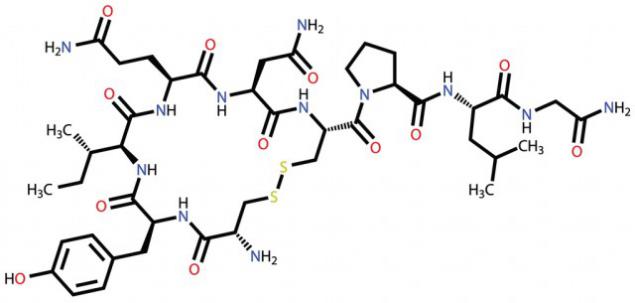
study was based on measuring the level of hormones of the indigenous population of Bolivia - farmers and hunters who live in the lowlands of the Amazon Basin.
Scientists say that the human hormonal system is particularly well suited to a lifestyle that revolves around small communities that produce their own food. "Our aim was to study the interaction of various hormones in view of motivations in a naturalistic context," - says Adrian Jaeggi, co-author of the study from the University of California at Santa Barbara.
"Hunting for existence - that's what people are doing hundreds of thousands of years».
Previous studies have shown that oxytocin encourages people to cooperate more closely, whereas testosterone has the opposite effect. Jaeggi said it expected to see a compromise between these two hormones and was surprised to find a positive relationship between them.
According to Jaeggi and his co-author Ben Trumble, increased testosterone while hunting may be associated with the "winner effect ', which is a man at the time of the murder. It may also be due to a sense of competition arising during the hunt. In any case, an increase in the level of oxytocin can be used to balance the hunters to become kinder, more generous and ready to share their booty.

"Here we see a potential hormonal pattern of behavior similar to that type of behavior alignment, which can be seen in communities of hunter-gatherers».
Another use of both hormones might be associated with the recovery after the hunt. Both hormones help restore muscles after physical activity. "At the end of the daily work of these people come home, and they're going to eat and share food," - continues to Jaeggi.
To conduct the study Trumble joined the hunters, released in the jungle to feed their families. As you move the group of hunters he collected samples of their saliva at regular intervals, which were later investigated in the laboratory.
Although the size of a small statistical sample, Trumble and Jaeggi noted that the study "certainly adds new facts to modern science, where the interaction between testosterone and oxytocin is often overlooked».
"I think the lack of home makes the heart fonder and this effect can potentially have very widespread," - says Jaeggi.
"Reuniting with their families after separation - a common problem for men throughout evolutionary history, and oxytocin can help with this».
Trumble noticed another interesting correlation: the hunt lasts an average of eight and a half hours, which is almost equivalent to the working day.
via www.dailymail.co.uk/sciencetech/article-3001376/Hunting-makes-heart-grow-fonder-Scientists-levels-love-hormone-boosted-men-return-home.html#ixzz3V065Ukr4
The study found that the higher a man's testosterone level rose during the day, the more oxytocin, "hormone of love", to develop his body upon arrival home. The researchers also found that the increase in the level of oxytocin was greater in men who no longer.

study was based on measuring the level of hormones of the indigenous population of Bolivia - farmers and hunters who live in the lowlands of the Amazon Basin.
Scientists say that the human hormonal system is particularly well suited to a lifestyle that revolves around small communities that produce their own food. "Our aim was to study the interaction of various hormones in view of motivations in a naturalistic context," - says Adrian Jaeggi, co-author of the study from the University of California at Santa Barbara.
"Hunting for existence - that's what people are doing hundreds of thousands of years».
Previous studies have shown that oxytocin encourages people to cooperate more closely, whereas testosterone has the opposite effect. Jaeggi said it expected to see a compromise between these two hormones and was surprised to find a positive relationship between them.
According to Jaeggi and his co-author Ben Trumble, increased testosterone while hunting may be associated with the "winner effect ', which is a man at the time of the murder. It may also be due to a sense of competition arising during the hunt. In any case, an increase in the level of oxytocin can be used to balance the hunters to become kinder, more generous and ready to share their booty.

"Here we see a potential hormonal pattern of behavior similar to that type of behavior alignment, which can be seen in communities of hunter-gatherers».
Another use of both hormones might be associated with the recovery after the hunt. Both hormones help restore muscles after physical activity. "At the end of the daily work of these people come home, and they're going to eat and share food," - continues to Jaeggi.
To conduct the study Trumble joined the hunters, released in the jungle to feed their families. As you move the group of hunters he collected samples of their saliva at regular intervals, which were later investigated in the laboratory.
Although the size of a small statistical sample, Trumble and Jaeggi noted that the study "certainly adds new facts to modern science, where the interaction between testosterone and oxytocin is often overlooked».
"I think the lack of home makes the heart fonder and this effect can potentially have very widespread," - says Jaeggi.
"Reuniting with their families after separation - a common problem for men throughout evolutionary history, and oxytocin can help with this».
Trumble noticed another interesting correlation: the hunt lasts an average of eight and a half hours, which is almost equivalent to the working day.
via www.dailymail.co.uk/sciencetech/article-3001376/Hunting-makes-heart-grow-fonder-Scientists-levels-love-hormone-boosted-men-return-home.html#ixzz3V065Ukr4
